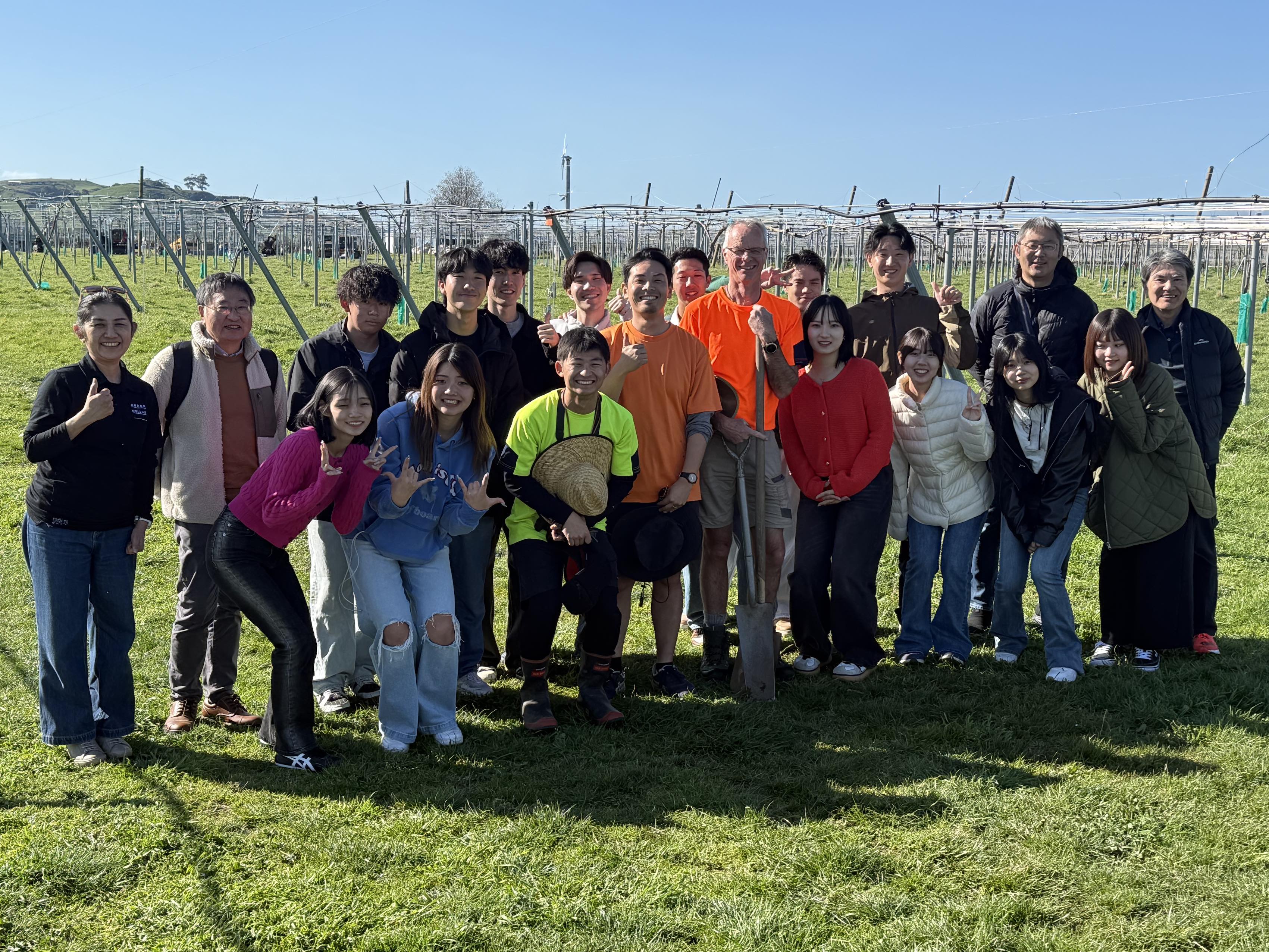News
Japanese uni students investigate soil, worms and sustainability at Greencollar vineyard

Worm-handling was probably not on the list of experiences university students from Japan were expecting when they visited the Greencollar table grape vineyard in Hastings last week.
Getting this close to the wriggly critters was a first for the city dwellers, and some were even brave enough to hold them while they learned about their importance to primary industry.
The 13 third-year agribusiness students from Tokyo University of Agriculture were at the Hawke’s Bay vineyard learning how traditional Japanese grape-growing techniques and Hawke’s Bay’s prime growing conditions were being combined by Greencollar to produce world-class Budou (Japanese table grapes).
Greencollar Information and Communication Technology lead Nozomu Takahashi talked the students through the company’s vision: producing world class Japanese Budou, with a focus on sustainable practices, skill development and staff well-being, before the team took them on a tour of the vineyard.
Out in the field, Greencollar General Manager of Operations and Sustainability Xan Harding explained how good soil management was crucial to the success of the company. “It doesn’t matter how impressive your business model is,” he told them.
“If your business is growing food and your soil isn’t right, nothing else will work. Worms are a very important part of that – taking organic material from the surface and mixing it into the soil. Essentially each one is a little farmer, helping to feed and aerate the soil.”
The students 10-day study tour took them to farming operations across Hawke’s Bay and Canterbury, to compare farming systems and business models between the two countries. They were led by Professor Yukio Shibuya of the university’s Faculty of International Agriculture and Food Studies. He is temporarily based at Lincoln University, which has a Memorandum of Understanding with Lincoln’s Faculty of Agribusiness and Commerce.
Professor Shibuya said New Zealand farming practices were very interesting to Japanese faculty and students, given the marked differences. In Japan farms are predominately small and family-run – usually about 2.5 hectares compared to New Zealand’s much larger land-holdings.
Greencollar bridges the two models, with three vineyards in Japan alongside its 16-hectare Hastings site, which has plans to expand to 100 hectares.
He said a unique point was the Greencollar, ‘two-summers’ system. Grapes growing in both hemispheres, allowed for two harvests a year of these special grape varieties prized as the ‘king of fruit’ in Japan – a key advantage.





